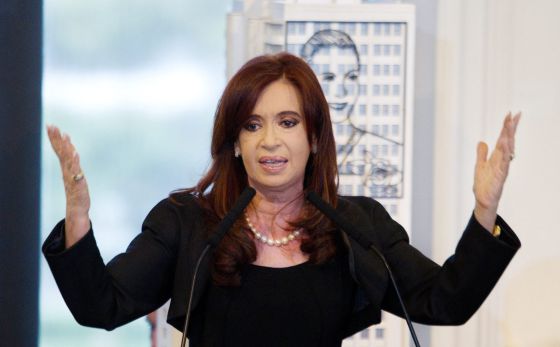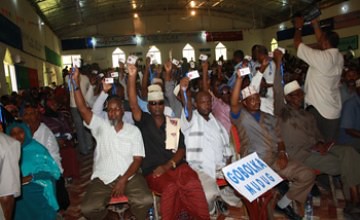 ampliar foto
ampliar foto
Fernández de Kirchner announcing Monday the expropriation of YPF. / LEO LA VALLE (EFE)
Argentina announces expropriation of Repsol oil subsidiary YPF
After weeks of speculation, Argentinean President Cristina Fernández de Kirchner announced on Monday that her government is going to nationalize the Spanish Repsol subsidiary YPF, declaring that her country’s hydrocarbon industry was a sector of “public interest.”
In a speech made in Buenos Aires after returning from the Americas Summit in Colombia, Fernández de Kirchner explained that she will send a law to Congress that proposed giving 51 percent control of YPF to the federal government and the remaining 49 percent to the country’s provinces.
In the coming days, the country’s appraisers will decide how much it will reimburse YPF for its shares.
“When one makes decisions in the interests of national management […] one also expects that managers understand the interests of the state,” Fernández de Kirchner said.
“We are the only country in America and one of the few in the world that doesn’t manage its own natural resources, but there were stronger arguments in favor of us taking this decision,” she said.
The nationalization came just days after Spain issued a stern warning against the Argentinean government not to take control of YPF, threatening to break “economic and fraternal” relations if the leftist Peronist administration of Fernández de Kirchner followed through with the plans.
In Madrid, María Dolores de Cospedal, secretary general of the ruling Popular Party (PP), said the government intends “to give an energetic response” after consulting with its European Union partners.
An EU delegation from Brussels was scheduled to arrive in Buenos Aires on Thursday to demand that Argentina respect the agreements it has signed with foreign investors.
------------------------------------------------
https://imagenes.repsol.com/es_en/YPF_Expropiacion_ing_tcm11-621728.pdf
Repsol acquisition
Spanish multinational corporation Repsol purchased 98% YPF in 1999 in two stages: a 15% share sold by the national government for US$2 billion, and a further 83% for over US$13 billion including all remaining public sector shares (10%, equally divided between the nation and the provinces) as well most of the outstanding investor shares. The union of the two companies took on the name Repsol YPF; YPF would represent 40% of the new firm's reserves and over 50% of its production.




